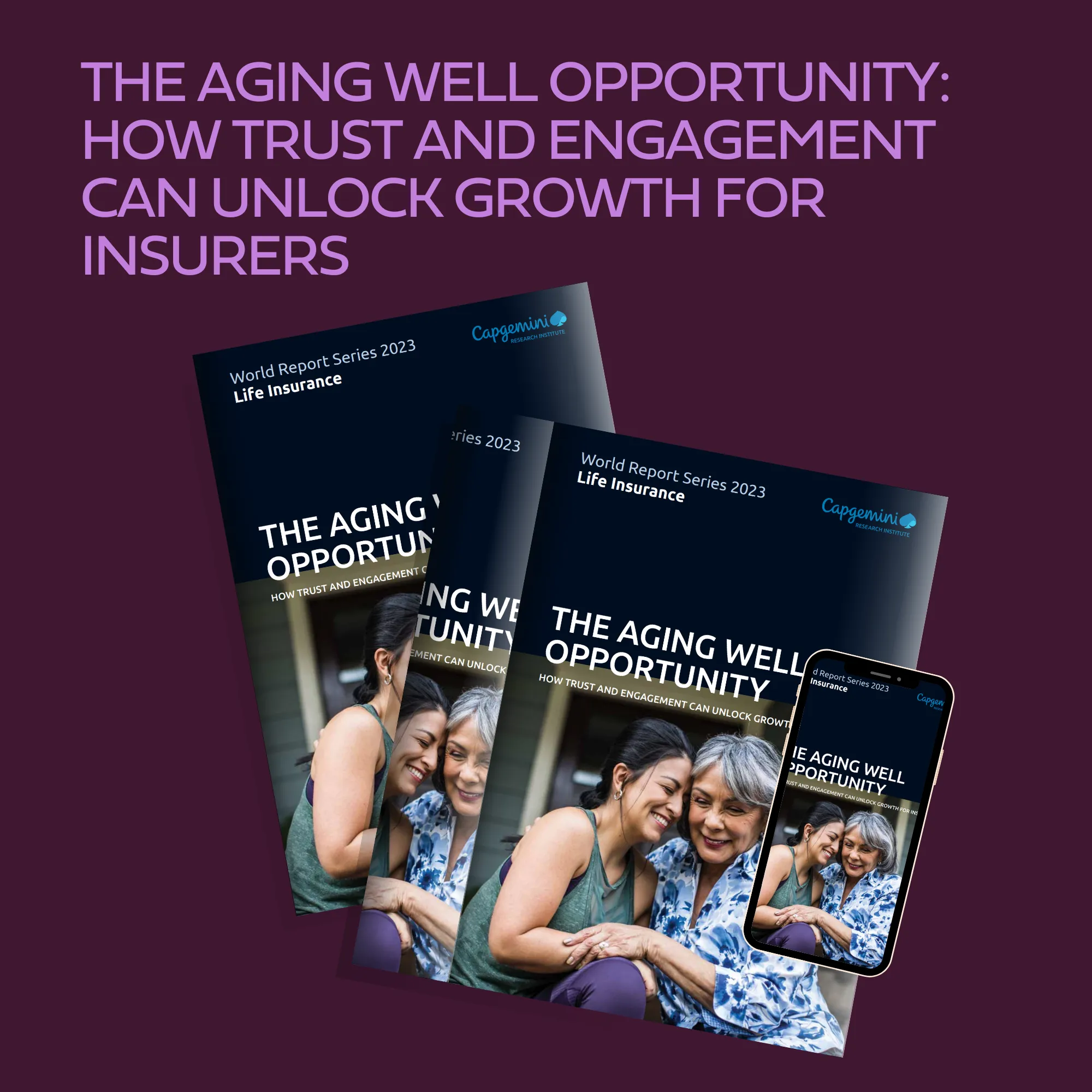The aging well opportunity: How trust and engagement can unlock growth for insurers
This report made by Capgemini with the participation of Qorus emphasizes the importance of early engagement with clients and beneficiaries, recommending personalized and tailored experiences through innovative product design. Ecosystem partnerships, particularly with firms specializing in serving seniors, are highlighted as a key strategy to close the capabilities gap and provide value-added services.
In partnership with

Capgemini
We partner with companies to transform and manage their business by unlocking the value of technology.
The life insurance industry is facing an unprecedented challenge, as the looming $7.8 trillion wealth transfer to beneficiaries by 2040 poses a significant threat to insurers unprepared for this historical shift. According to this report made by Capgemini Research Institute with the participation of Qorus, a staggering 60% of individuals aged 65 or older have not sought professional financial advice, leaving them unprepared for retirement and wealth transfer.
As the aging population grows, with the United Nations predicting that 33% of the world’s population will be over 50 by 2050, the need for innovative life insurance offerings becomes critical. However, insurers are struggling with product development capabilities, hindering their ability to meet the evolving needs of consumers.
To address this challenge, the report emphasizes the importance of early engagement with clients and beneficiaries, recommending personalized and tailored experiences through innovative product design. Ecosystem partnerships, particularly with firms specializing in serving seniors, are highlighted as a key strategy to close the capabilities gap and provide value-added services.
Furthermore, the report underscores the need for insurers to prioritize affluent and mass affluent consumers, who hold a significant portion of global wealth. These consumers express a strong demand for aging-well solutions, presenting an opportunity for insurers to bridge the gap by forming partnerships and offering innovative products.
In navigating the future, insurers are urged to transform their customer lifecycle, shifting from a product-centric approach to one focused on customer-centricity. The adoption of advanced technologies, including artificial intelligence, is recommended to streamline operations, enhance customer experiences, and make data-driven decisions. Insurers that successfully navigate this transformation will not only fortify trust across generations but also position themselves for future growth in the face of the impending wealth transfer.

Download your study now
Insurance & Embedded Insurance community
With Qorus memberships, you gain access to exclusive innovation best practices and tailored matchmaking opportunities with executives who share your challenges.